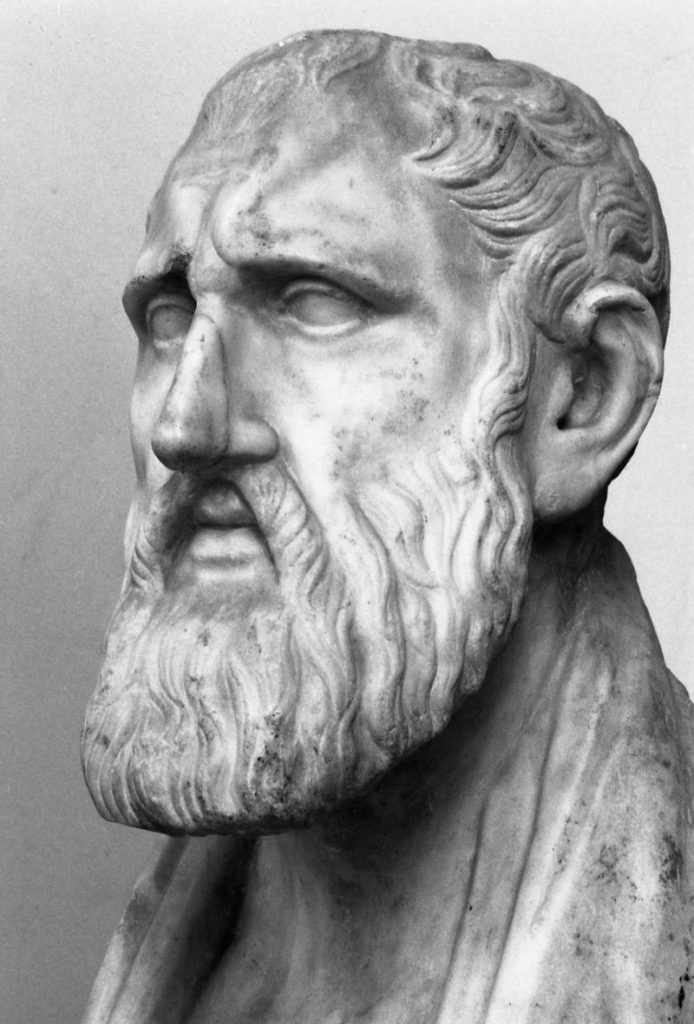Dr Andreas Sofoklis, Mikis Kasapis & Philip Nicolaides, members of Cyprus Travel Writers & Journalists Society, participated in the conference: The crisis of values in the modern world and the development of Stoicism. Dr Andreas Sofoklis addressing the conference.
Dr Andreas Sofoklis addressing the conference. Stoicism is a school of Hellenistic philosophy that flourished in Ancient Greece and Ancient Rome. The Stoics believed that the practice of virtue is enough to achieve eudaimonia: a well-lived life.
Stoicism is a school of Hellenistic philosophy that flourished in Ancient Greece and Ancient Rome. The Stoics believed that the practice of virtue is enough to achieve eudaimonia: a well-lived life. Why is Stoicism so powerful? It teaches emotional management. This is to say that instead of allowing our emotions to get the better of us, Stoicism teaches rationality and level-headedness. Instead of worrying why something didn’t go the way we would have liked, we can take the situation as it is and work to move forward. In the picture: Stavroula Tsinorema, Professor of Philosophy, Cretan University and Ioannis Triskokas, Professor of Philosophy, University of Athens.
Why is Stoicism so powerful? It teaches emotional management. This is to say that instead of allowing our emotions to get the better of us, Stoicism teaches rationality and level-headedness. Instead of worrying why something didn’t go the way we would have liked, we can take the situation as it is and work to move forward. In the picture: Stavroula Tsinorema, Professor of Philosophy, Cretan University and Ioannis Triskokas, Professor of Philosophy, University of Athens. What is the belief of Stoicism? It influenced the development of Christian morality and theology, and also modern philosophy. Stoicism can be epitomized by three essential beliefs: (1) that virtue is sufficient for happiness, (2) that other so-called goods should be regarded with indifference, and (3) that the world is providentially ordered by God. In the picture Ms Evi Zorpidou, Dr Ioannis Christodoulou, University of Cyprus & Dr Christos Hatzioannou, University of Sophia.
What is the belief of Stoicism? It influenced the development of Christian morality and theology, and also modern philosophy. Stoicism can be epitomized by three essential beliefs: (1) that virtue is sufficient for happiness, (2) that other so-called goods should be regarded with indifference, and (3) that the world is providentially ordered by God. In the picture Ms Evi Zorpidou, Dr Ioannis Christodoulou, University of Cyprus & Dr Christos Hatzioannou, University of Sophia. Zeno of Citium (c. 334 – c. 262 BC) was a Hellenistic philosopher from Citium, Cyprus. He was the founder of the Stoic school of philosophy, which he taught in Athens from about 300 BC. Based on the moral ideas of the Cynics, Stoicism laid great emphasis on goodness and peace of mind gained from living a life of virtue in accordance with nature. It proved very popular, and flourished as one of the major schools of philosophy from the Hellenistic period through to the Roman era, and enjoyed revivals in the Renaissance as Neostoicism and in the current era as Modern Stoicism.
Zeno of Citium (c. 334 – c. 262 BC) was a Hellenistic philosopher from Citium, Cyprus. He was the founder of the Stoic school of philosophy, which he taught in Athens from about 300 BC. Based on the moral ideas of the Cynics, Stoicism laid great emphasis on goodness and peace of mind gained from living a life of virtue in accordance with nature. It proved very popular, and flourished as one of the major schools of philosophy from the Hellenistic period through to the Roman era, and enjoyed revivals in the Renaissance as Neostoicism and in the current era as Modern Stoicism.




